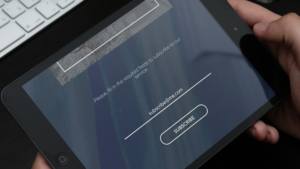By Ross Timms, Head of Strategy, Rufus Leonard
CMOs have a real challenge on their hands; 44% of CMOs have faced mid-year budget cuts in 2020 – a direct result of the Covid-19 pandemic. The challenge is, how are CMOs going to continue to build a successful brand and deliver returns, with less?
The relationship between brand, reputation and experience
It’s important to recognise that brand is the combination of the promise communicated by marketing and delivered through the experience. Delivering an experience grounded in genuine value, leads to a strong reputation and, in turn, builds a strong brand.
Illustrating the environment facing brands today, Forbes explains ‘COVID-19 accelerates digital customer behaviours and amplifies the importance of empathetic experiences’. Peoples’ behaviours now show they need a clear, personal and responsive relationship with the brands they use. Supporting this need must be at the heart of any sustainable growth plan, creating the bedrock for long-term loyalty. By providing products and services that are genuinely customer centred and responsive to changing behaviours and emerging needs, your brand is able to build its reputation.
Data-driven empathy through natural tension
In his 2020 CX report, John Meada defines the tension at the heart of building brands today. Fundamentally, he explains that improving marketing (search, social, websites etc.) is a fast process, whereas improving experiences (products and services) is slow. The key to building a modern brand is managing and utilising this tension.
The best brands do this by understanding data, at an individual and aggregate level. This helps brands learn from their product and services usage to deliver experiences that meet people’s expectations, while listening to their marketing data to ensure their products and services respond to people’s needs and motivations.
This use of data – supported by a leadership that understands technology and provides autonomy – is how modern brands benefit from the tension. It enables them to embrace data-driven empathy; they are able to build one-to-one, on-demand relationships with their prospects and customers, responding to changing behaviours and requirements while building trust.
They are able to unlock great stories that are used to share the best of the experience, strengthen their reputation and build their brand. For the CMO whose budget is cut, pooling the data from across marketing and the experience will give you all the help you need, right now and in the future. Using the wealth of insight available already, the CMO does not need to spend on research to understand what people think and feel about their brand.
The power of data from products and service usage will help the CMO to unearth raw stories to turn into marketing material; understanding where their brand’s reputation is strong and identifying where to focus emphasis in marketing story telling. A simple example of this in action is Spotify’s ‘Wrapped’ campaign; usage data over the decade provided limitless fuel for bold and nostalgic marketing stories while highlighting substantial growth in its podcast product.
Aligning to unlock data
While Covid-19 is a catalyst of digital transformation, it has become apparent that we don’t have a technology problem. For most brands, digital transformation is driven by their customers moving faster than they are able to. While it is possible for brands to identify the relevant technology needed, it is modern brands that quickly ensure that they are all pointing in the same direction and are working with, rather than against, each other. If your organisation is not aligned, that creates a data challenge – the data you have, the data you use, and what you learn from it.
At Rufus we’ve created the Experience Value Engine (EVE), a tool that reveals the connections across your organisation’s brand experience ecosystem; brand, experience and data. It helps you understand your data capability alongside the rest of your business and, most importantly, it identifies where to start and what to do when modernising your own brand.
Becoming a modern brand
These three actions will help you address the challenge of building a successful brand and delivering returns, with less budget:
- Connect and align data across marketing and experience – Unearth marketing stories from usage data, and insight from marketing data that connects product and service development with people’s needs and motivations.
- Think and act in real-time but be guided by your visionary strategy – This is how modern brands move at the speed of consumers and continue to lead their competitors.
- Build partnerships and alliances – A modern brand’s ability to flex is grounded in the strength of the relationships within. Establish shared ambitions, aligned objectives and trust to truly leverage data as a strategic asset.









